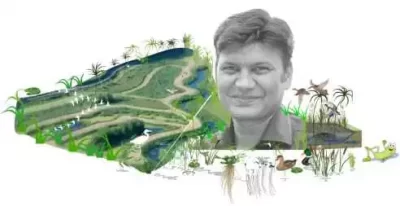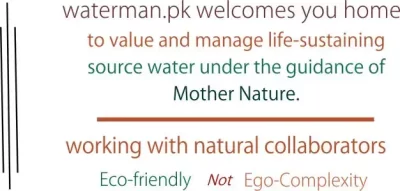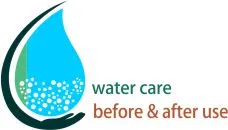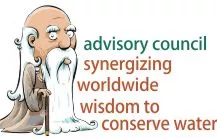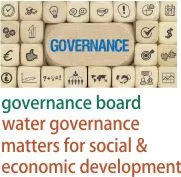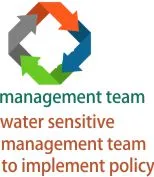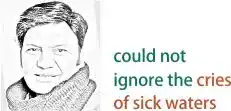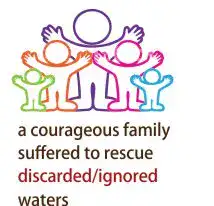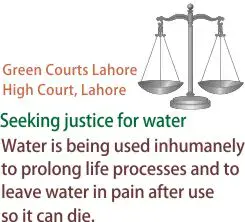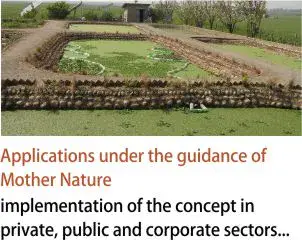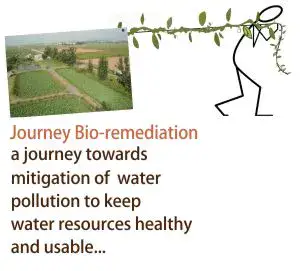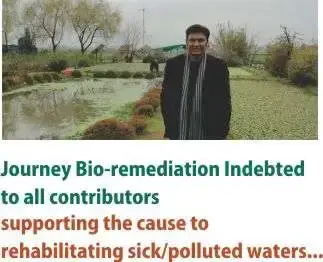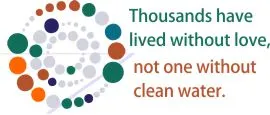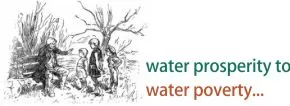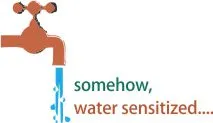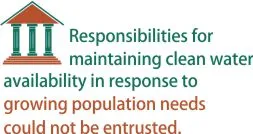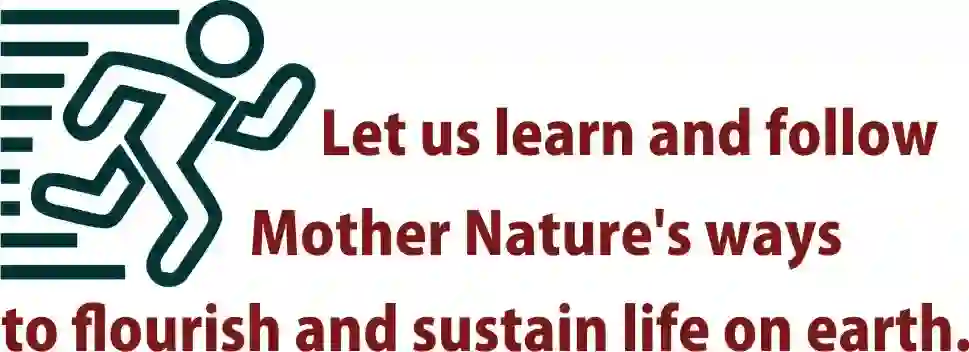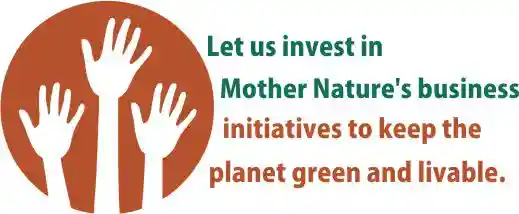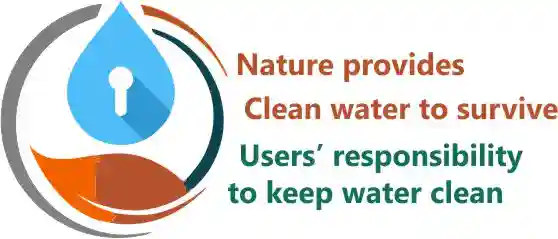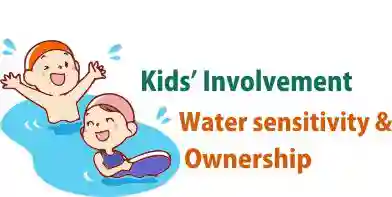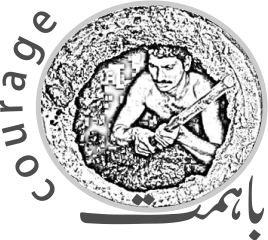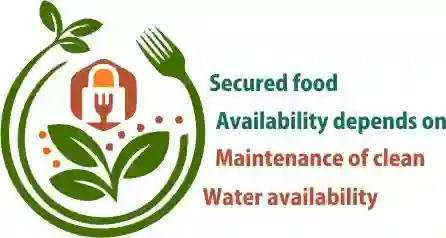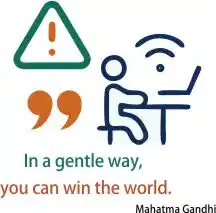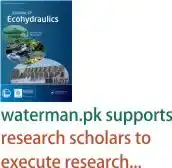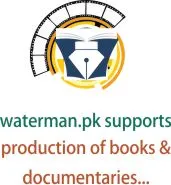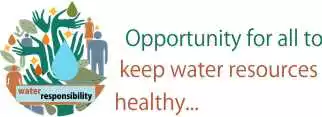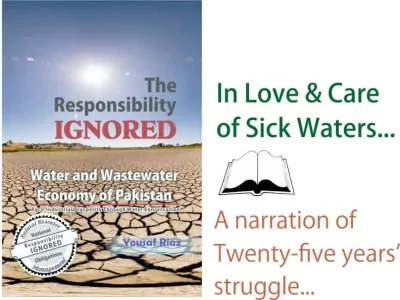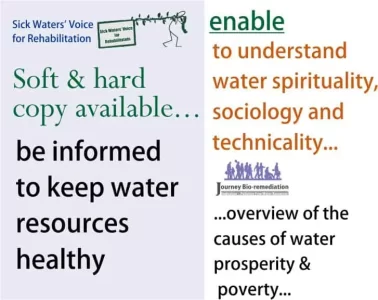To meet family necessities, people are pushed to enter sewage manholes to maintain a clean environment in which
resourceful residents can live.
In return, the cleaner earns hate, injustice, life risk, and negligible earnings to remain in the filth.
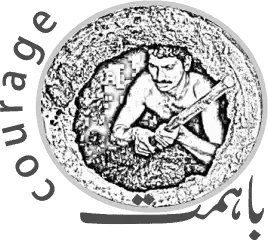
It is time to acknowledge the great courage of the people to do the job that others do not want to do; they do it for their families—to keep others homes 'clean and the places liveable.
performing the duty with dignity and integrity...
integrity
waterman.pk considers it a business activity, and it is important to focus on the safety measures and negotiate proper remuneration out of it. Logically, it is difficult to take all workers out of work, but waterman.pk thinks it is necessary to work with them to improve their social status and introduce innovation in this economic activity to earn appropriately. The people involved in this income-generating activity lost their self-confidence to assert themselves for their rewards. The process of organising small committees in towns and urban centres to work on formulating ways to maintain dignity and create an enabling environment to perform better...

waterman.pk facilitates the courageous people to remain safe and healthy to contribute the wellbeing of the community...

negotiation to minimise the risks...
Safety First
waterman.pk creates and implements training programmes that prioritise safety management.
Obnoxious Gases
waterman.pk team provides information on various gases that can be harmful and how to avoid their harmful effects.
Hazardous Chemicals
waterman.pk safety team also enables the workers to know about the prevalence of possible risky chemicals that can cause skin infections, etc.
Biological Hazards
waterman.pk safety team builds workers capacity to know about the biological hazards that can cause various infections and safety measures to prevent these risks.
waterman.pk thinks about another dimension...
thoughts
Another Dimension
waterman.pk made an analysis to review the outcome of looking into the venture of managing the flow of sewage water. It can be an opportunity, with the addition of some new applications, to generate income for workers who have traditional skills. Logically, it is difficult for all the workers to quit the job, and the demand for this skilled labour cannot be immediately filled. The most important thing is to ensure the safety and restoration of honour for the workers. The workers' unity and support for each other are a must.
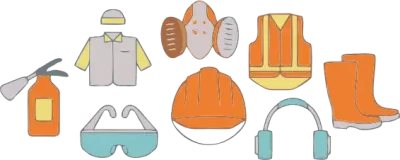
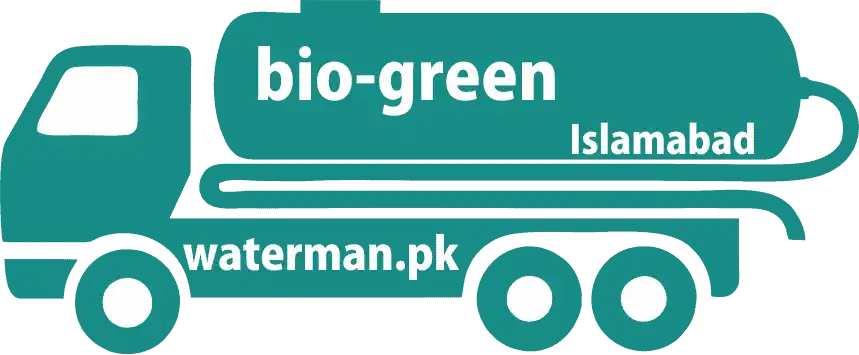
waterman.pk team works to do...
Organising workers to form associations to settle fair remuneration and safety concerns
Facilitating water and sludge testing to take appropriate measures to maintain safety
Provision of safety equipment on rent or having these on soft-term loans
Workers' investment joint ventures to formulate business concerns to provide services on a contract basis
Facilitation in the provision of legal services in cases of violations
waterman.pk facilitate workers to get out of survival mood...
survival mood
A family, community, or nation that lives in a survival mood for a long time gradually loses hope of developing or growing. Society creates an environment for special workers to isolate themselves from the main stream of socially and economically growing families and communities. Their kids remain in a vicious cycle of survival thoughts. The lack of inspirational interactions with role models harms the developing process of the coming generation.
unheard stories
How death and despair haunt Pakistan’s Christian minority
Pakistan’s Christians have long been marginalised and pushed into sewer cleaning work. Now, some are fighting back.
By Saad Zuberi, Published On 9 Apr 2023,
Aljazeera, Long Read
Sargodha, Pakistan – It is just before 4am on a chilly November morning and Maryam Bibi, 34, is waiting in a small, musty room for her 16-year-old son Suleman to get ready so they can leave for work. They will start work before sunrise, as they do seven days a week, collecting the trash from people’s homes and sweeping the streets. A single bulb attached to exposed wires hangs over the door of the room where Maryam’s five other children, four of them younger than Suleman, all sleep. Maryam unplugs the bulb from the socket and their bare, two-room home plunges into darkness. She needs to charge her phone on the only power socket before heading out for the day. After a rushed breakfast of tea and stale bread, Maryam and Suleman hop on a rickety motorbike and make their way through the winding streets of a sleeping Sargodha, Pakistan’s 12th largest city, sandwiched between the Jhelum and Chenab rivers in the central-eastern province of Punjab. It is still dark out, and the mother-son duo is headed to a small residential neighbourhood where they will spend their morning picking garbage for a combined monthly salary of 16,000 rupees ($55.43) that must sustain their family of eight.
“Ammi [mother] tells me to go back to school, that she will do the work herself, but I just can’t. Not anymore,” says Suleman as he pulls on a worn-out pair of suede gloves bought at a flea market. He uses these gloves to protect his hands while rummaging through garbage cans. “It’s my responsibility to look after my siblings now that Abbo [father] is gone.”
Suleman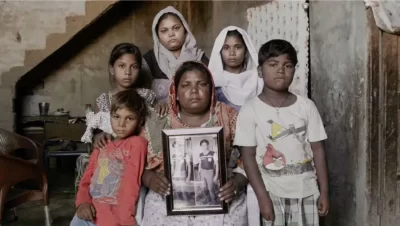 , a soft-spoken teenager, had dreamt of one day joining the police force. He knows how unlikely that is now that he has had to step up and help his widowed mother run the household. Suleman’s father Nadeem died over a year ago when he drowned in a blocked sewer. As she begins her busy day, Maryam admits that she and her children “don’t even have the luxury of sitting at home and grieving their loss”. With bare hands, and dressed in a tattered shalwar kameez and chador, she knocks on one door after another, swiftly collecting trash into a rusty wheelbarrow as Suleman follows, intently observing his mother, learning the job he inherited from his late father.
, a soft-spoken teenager, had dreamt of one day joining the police force. He knows how unlikely that is now that he has had to step up and help his widowed mother run the household. Suleman’s father Nadeem died over a year ago when he drowned in a blocked sewer. As she begins her busy day, Maryam admits that she and her children “don’t even have the luxury of sitting at home and grieving their loss”. With bare hands, and dressed in a tattered shalwar kameez and chador, she knocks on one door after another, swiftly collecting trash into a rusty wheelbarrow as Suleman follows, intently observing his mother, learning the job he inherited from his late father.
A death trap
Thirty-eight-year-old Nadeem Masih (a common surname among Pakistani Christians that means Messiah in Arabic and Urdu) had worked with the local sanitation corporation for nearly half his life. For 17 years, he was paid a daily wage, as he waited for a permanent contract that would legally grant him the status of a permanent government employee and secure him a legal minimum wage, paid leave, and other social benefits.
At around 10pm on Sunday, October 3, 2021, Nadeem and several other workers received a phone call from their supervisor, urgently summoning them to clean a blocked sewage line in the city centre.
“He didn’t want to go because it was his day off, but the supervisor threatened him [by saying he’d fire him if he didn’t go], so I also encouraged him to comply because we couldn’t risk losing the job,” says Maryam as tears well up in her eyes. “We are helpless and poor, without any rights whatsoever. We don’t have a choice when supervisors threaten, curse and disrespect us. Our only option is to give in.”
Nadeem reluctantly left the house that night.
Shortly after midnight, Maryam received a frantic call from her nephew, asking her to rush to the open sewer that had become a death trap for her husband and another man, Faisal Masih, 28, the sole breadwinner for his family, and father to a newborn baby.
Maryam and Suleman rushed to the site of the accident just 10 minutes from their home. “At first I didn’t understand what was going on. There were a lot of people there and they were all shouting. My nephew told me Nadeem had drowned, but I didn’t believe him until I saw him down there myself,” recalls Maryam. Both men lay covered in sewage sludge for six hours before their bodies were finally extracted by a colleague. According to Maryam the supervisor had fled the scene.
Kept on edge
That night, Nadeem and Faisal’s colleague Michael Masih had been the first of the three men to descend into the manhole. “Once you remove the cover, you must always wait for 30-40 minutes to let the poisonous gases evaporate, but our supervisor was impatient and he forced me to go down right away,” he recalls mournfully, sitting on the roof of the home that he shares with his three brothers and their families.
As Michael climbed down the ladder, it collapsed and he fell into the sludge. His fall released more noxious gas. “I fell unconscious instantly,” he recalls. When he woke up, he was told that both Nadeem and Faisal had died trying to save him. The toxic sewer gases had rendered them unconscious and both men drowned.
Their deaths, says the 30-year-old father of two, wiping the tears off his cheeks with his sleeve, could easily have been prevented if they hadn’t been forced to rush and had proper safety gear.
“You cannot imagine what my heart goes through every day thinking about what happened that night,” he says.
Nadeem and Faisal’s employer denies any wrongdoing in relation to their deaths.
This was not an isolated incident. In the absence of workplace health and safety regulations and ethical superintendence, Pakistan’s sanitation workers, about 80 percent of whom are Christian, are routinely exposed to a host of unsafe and deadly work practices.
Generation after generation of Pakistani Christians like Nadeem, Faisal and Michael face preventable workplace deaths and accidents as they are forced into the hazardous work of cleaning the country’s streets and gutters.
Over a period of years, desperate daily workers without other prospects are kept on edge – forced to do just one more job, or go down just one more clogged sewer without protective gear – with the promise of a life-changing contract that would give them and their families the protection of health insurance and a pension.



